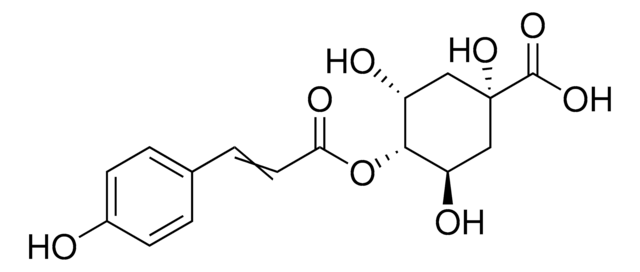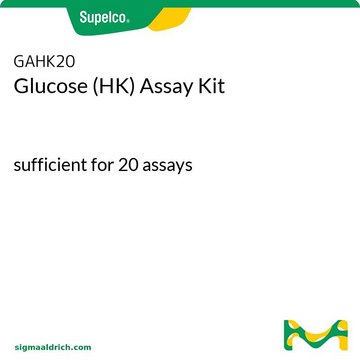MAK093
Phosphofructokinase (PFK) Activity Colorimetric Assay Kit
sufficient for 100 colorimetric tests
Sinonimo/i:
PFK Activity Assay Kit
About This Item
Prodotti consigliati
impiego
sufficient for 100 colorimetric tests
Metodo di rivelazione
colorimetric
Malattie correlate
cancer; orthopedic diseases; aging/geriatric diseases
Temperatura di conservazione
−20°C
Informazioni sul gene
human ... PFKL(5211) , PFKM(5213) , PFKP(5214)
mouse ... PFKL(18641) , PFKM(18642) , PFKP(56421)
rat ... PFKL(25741) , PFKM(65152) , PFKP(60416)
Categorie correlate
Descrizione generale
Applicazioni
Compatibilità
Principio
Avvertenze
Danger
Indicazioni di pericolo
Consigli di prudenza
Classi di pericolo
Resp. Sens. 1
Codice della classe di stoccaggio
10 - Combustible liquids
Certificati d'analisi (COA)
Cerca il Certificati d'analisi (COA) digitando il numero di lotto/batch corrispondente. I numeri di lotto o di batch sono stampati sull'etichetta dei prodotti dopo la parola ‘Lotto’ o ‘Batch’.
Possiedi già questo prodotto?
I documenti relativi ai prodotti acquistati recentemente sono disponibili nell’Archivio dei documenti.
Il team dei nostri ricercatori vanta grande esperienza in tutte le aree della ricerca quali Life Science, scienza dei materiali, sintesi chimica, cromatografia, discipline analitiche, ecc..
Contatta l'Assistenza Tecnica.



